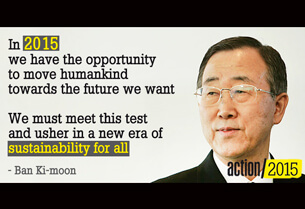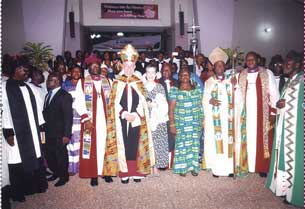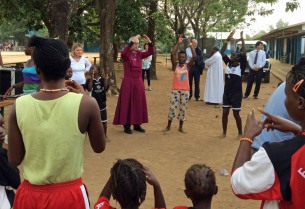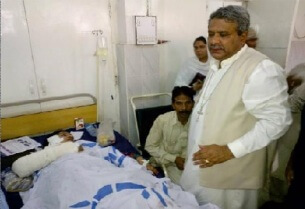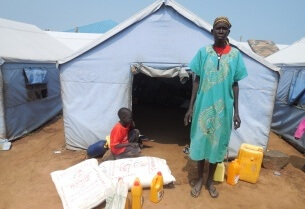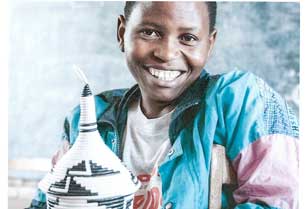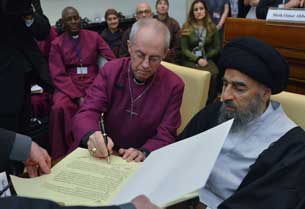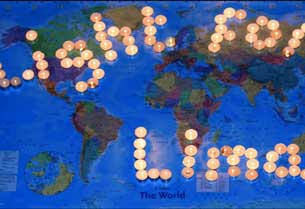News
action/2015 asks citizens worldwide to call on global leaders to commit to a better world
Almost a billion lives hang in the balance when world leaders meet at two crucial summits in New York & Paris this year. That’s why the Anglican Alliance has joined a global coalition of charities, organisations and individuals in action/2015, to call on world leaders to make bold decisions to end poverty, inequality and climate change.
The Archbishop of Canterbury on Sierra Leone, South Sudan and living out the generosity of Christ
Below is the transcript of the Archbishop of Canterbury’s New Year Message, filmed at the National Memorial Arboretum and broadcast on BBC One and BBC Two on New Year’s Day 2015.
Happy New Year! Join us for action/2015 and a big year for churches worldwide
The Anglican Alliance is joining the mass mobilisation campaign action/2015 and the interfaith coalition ‘Our Voices’ for a year of big decisions for development and the future of our world.
UK Churches speak out with Archbishop Justin Welby as they respond to hunger in Britain
Anglicans in the United Kingdom have been speaking out about hunger in the UK to coincide with the publication of the UK All-Party Parliamentary Group Inquiry Report on Hunger and Food Poverty.
This Christmastide, continue to pray for and support those affected by the Ebola crisis in West Africa
In January 2014, the Ebola Virus Disease epidemic started in Guinea and then spread to Liberia and Sierra Leone. In all three countries the churches have been on the front line of response.
Christmas celebrations ‘cancelled’ in Peshawar after school attack
The Bishop of Peshawar said that, following what he called “another unimaginable horror”, the Church in Pakistan has decided to make Christmas a time of quiet prayer and simple worship.
South Sudan, a year on: the need for prayer and solidarity continues
A year ago today, 15 December, violence broke out in Juba. Since then, the conflict has left nearly 2 million people displaced in South Sudan or in neighbouring countries. Overall, nearly 4 million are in need of humanitarian assistance, with the food crisis growing. Although there is relative calm at the moment, security needs to be sustained before people feel safe to return home and start rebuilding their lives and communities.
Calling leaders in education – apply for our next Commonwealth Scholarship Scheme!
The Anglican Alliance is calling leaders in education from Commonwealth countries in Africa, Asia, Latin America and the Caribbean, and the Pacific, to apply to their next fellowship programme with the Commonwealth Secretariat.
Anglican Alliance launch new resource in support of persons with disabilities in refugee settings
The Anglican Alliance is marking International Day of Persons with Disabilities with the launch of a new resource, ‘A better life together’, to help faith communities engage with and support people with disabilities living in refugee and internally displaced persons (IDP) camps.
Archbishop of Canterbury joins the Pope and other faith leaders to sign Declaration to end Modern Slavery
On Tuesday 2nd December the Vatican City saw a truly historic gathering of global faith leaders. The Pope, the Archbishop of Canterbury and other global faith leaders from Orthodox, Jewish, Sunni and Shia Muslim, Hindu and Buddhist communities came together to make a joint declaration on ending modern slavery.
Anglicans around the world mark World AIDS Day 2014
World AIDS Day is marked every year on 1 December. World AIDS Day is an important annual event giving people worldwide the opportunity to unite in highlighting HIV, to demonstrate their support for those living with and affected by HIV and AIDS, and to remember those who have died from AIDS-related illnesses.
Calling churches and communities to hold their Light for Lima vigil on Sunday 7th December
On Sunday 7th December 2014 the Our Voices campaign is asking churches and faith communities worldwide to hold a vigil at 8pm local time and mark the climate discussions in Lima, Peru.

